
Poster of the movie "Operation Moscow"
The infamous "China-Russia International Robbery" featured by Time Network has once again been put on the big screen-the film "93 International Train Robbery: Moscow Action" co-starred by Han Sanping and Andy Lau and directed by Qiu Litao, Zhang Hanyu, Andy Lau, Huang Xuan, Janice Man and Jason Koo.
The film was adapted from a real event, which attracted widespread attention in the early 1990s and has been adapted into a film and television drama for many times. Four days after the film was released in China, the box office has exceeded 200 million. Many action scenes in the film are quite popular, but there are also some scenes in which female characters are violated, which cause controversy. In fact, in real history, the crime that happened on that train is far more chilling than the film.
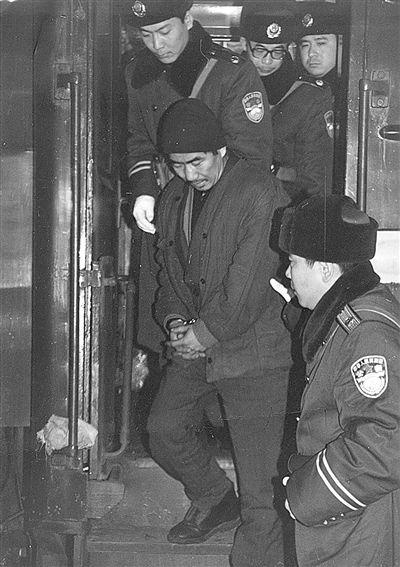
Historical pictures of Sino-Russian train robbery
Sino-Russian international train robbery refers to a series of carjacking cases on the international through train between China and Russia in the early 1990s. One of the most serious cases was the 3/4 international train robbery from Beijing to Moscow on May 26th, 1993. This case is often misunderstood and directly regarded as "the Sino-Russian international train robbery", but it is actually only the most representative case among many robberies. This train traveled in Russia for four days and was looted by several gangs, totaling five rounds.
K3/4 train from Beijing to Ulaanbaatar and Moscow, passing through China, Mongolia and Russia, has been in operation since 1960. It is the first foreign-related train since the founding of People’s Republic of China (PRC), leaving Erenhot with a total length of 7,818 kilometers. After Gorbachev’s visit to China in 1989, Sino-Soviet relations gradually normalized, and after the disintegration of the Soviet Union, Russia, which lacked light industrial products, had a great demand for Russian goods, which stimulated the development of Sino-Russian border trade.
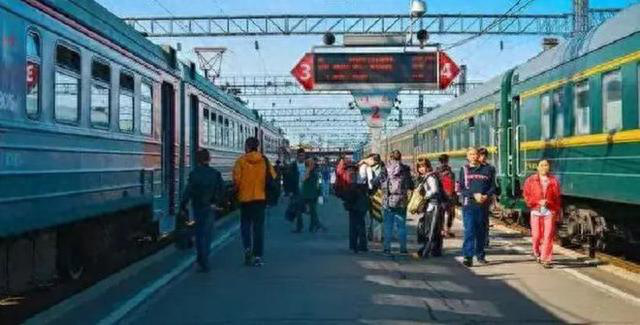
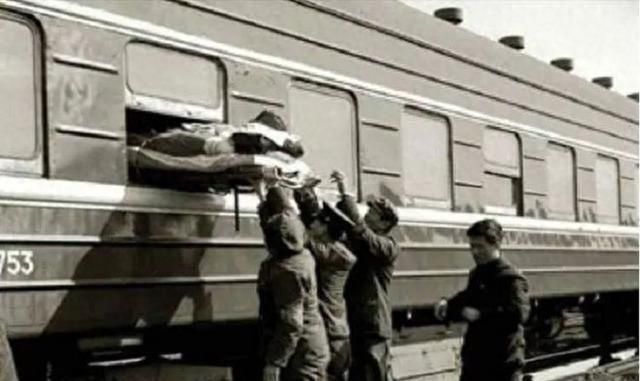
At that time, due to the lack of delivery channels, the K3/4 international train from Beijing to Moscow became the most important cargo channel. The originally deserted K3/4 international train has almost become a special train for Sino-Soviet trade. A trip to Russia will become a "million-yuan household", and the great temptation will make a large number of "international profiteers" get on this international train.
This train starts from Beijing Railway Station, and Beijing profiteers account for the majority. Most of them have no "legitimate jobs" or are two laborers released from prison. After six long days and six nights, these lonely and unbearable profiteers began to get familiar with each other in the car, and they became "gangs" from "lone ranger".
These profiteers who owe gambling debts soon discovered a loophole in international trains:
According to the border agreement, the police in China got off when the Erenhot train left the country. Mongolian police don’t get on duty, and they don’t care much about the internal affairs of China people. From China to Moscow for 6 days and 6 nights, there was no police on duty! In addition to Beijing traitors, there are also some Fujian and Shanghai traitors on the train, as well as Zhejiang snakeheads who organize smuggling abroad.
Bonnie and Clyde are real in history.
Beijing profiteers are eyeing South profiteers and Zhejiang snakeheads. They first shoplifted in the train, and later they developed into robbery. Since 1993, they have been robbing, raping and bloodbath international trains with guns and machetes. In the end, it developed into four robbery gangs headed by Newton, Miao Binglin, Zhao Jinhua and Zhu Xingjin.

Zhang Ben Yu is a monk with good language.
In the movie "Moscow Action", Zhang Ben Yu played a handful of Mao and the monk Yuxian played Zhao Na, Janice Man played Zhenzhen and Jason Koo played Miao Ziwen as lovers, and there were thieves and robbers in real events.

Janice Man
Zhao Jinhua and Zhu Xingjin are a group. The male and female robbers are called Zhao Erjie and Zhu Sange by people on the street. Zhao Jinhua, a woman from Northeast China, was an ordinary profiteer at first. Later, she found that train robbery was more profitable than dumping goods, so she joined Zhu Xingjin’s gang and finally became Zhu Xingjin’s concubine, becoming another leader of this cargo robber.
Zhao Jinhua’s success depends not only on her beauty, but also on her ability. Knowing the importance of human relations, she once spent $3,000 to bail out another robber leader, Miao Binglin, from the Russian police.
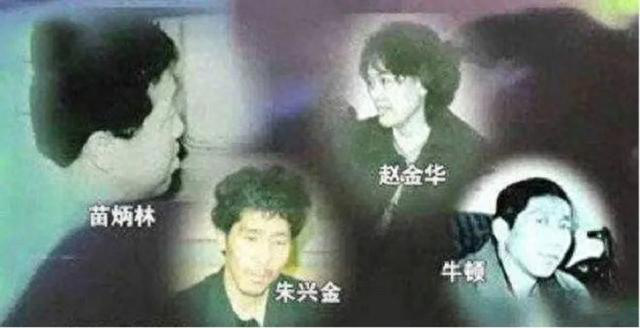
The main gangs of the Sino-Russian train robbery
From then on, she got along well with the robbers. As long as people in other gangs see a pack of Emerald cigarettes on the balcony table, they will know that this is Zhao Jinhua’s fat sheep, and no one dares to rob her.
Zhu Xingjin, Zhao Jinhua’s concubine, was originally a profiteer, earning hundreds of thousands in the early days, but lost all his money by indulging in gambling. Zhu Xingjin could not return to China and simply robbed Chinese people for a living, and gradually cultivated his own power on the K3 train.
Newton was born into a wealthy family in Beijing, and was robbed of money several times after he became a profiteer. Just like Shao Xun, he was forced to join the crime. Newton, who was gentle and gentle, gradually lost his conscience after several crimes and became more and more unscrupulous. He was also cared for by Zhao Jinhua. According to the memory of a robber who was arrested, Zhao Jinhua helped Newton tell him which box had an oil-water scraper and taught him to use a gun. Newton used a revolver gas gun, while Zhao Jinhua used a May 4th pistol. She also nudged Newton: "You can’t use this gun, you have to use the real thing."
Miao Binglin was the first of the four to start robbery. He was originally a wanted man, and fled to the international train to create such a frenzied road to wealth. Except Zhao Jinhua, the other three were all born in Beijing. K3 train robbers are mainly from Beijing.
Major case of "Sino-Russian international train robbery"
"March 10 gang rape case". On March 10, 1993, Ms. Gao, a female trade union cadre of a unit in Nanjing, Jiangsu Province, visited Moscow. During the journey of 6 days and 6 nights, this Jiangnan woman was gang-raped by 10 robbers for three times without help. Later, it was found out that the principal offender was Jia Xiaoming, a Beijing traitor.
"April 26th gang rape case". On April 26th, 1993, a female journalist who left her job without pay from a southern province was gang-raped by a group of China robbers as soon as she left Moscow station.
"5.26 extraordinarily serious robbery and rape case". From May 26th to 31st, 1993, the K3 international train from Beijing to Moscow was looted by four robbery gangs after leaving the country. Armed with gas guns, daggers and electric batons, four groups of robbers robbed passports and money of more than 20 China tourists, raped and gang raped three women, and injured and stabbed many others. The amount of money robbed was more than 7,000 dollars, and there were hundreds of thousands of rubles and a large number of RMB and gold jewelry.
The media generally refer to the "China-China Train Robbery", which was the most complicated case and the worst impact among many robberies in that year, and it was also one of the top ten important cases in. Before committing the crime, they pretended to be passengers and accosted them to determine who had money and who brought what goods. After stepping on the spot, they "ordered the road" with their accomplices, colluded with each other and then committed crimes separately.
"Although their gangs commit crimes, whoever grabs the money will be the one. After committing the crime, they will join other gangs to continue committing crimes." Director Ai Anjun of Beijing Railway Public Security Bureau mentioned in his memory.

Stills of the movie "Moscow Action"
According to public information, after the train left the border of China, the China police got off according to the regulations, but the Russian and Mongolian sides did not equip the train with police forces. Robbers who rob trains often hold deadly weapons, robbing them box by box. Male travelers who refused to hand over their belongings were beaten, forcibly searched and turned over their luggage, while female travelers were asked to take off their clothes and "hand over" the money hidden in their underwear. Treating passengers who resist or jump out of the window, gangsters are armed and hurt, and even stop the train and get off the train to chase and chop.
According to the memories of the passengers at that time, because most of the people on the train were from China who were looking for gold in Russia, the gangsters would have scruples at first, but in the end, they simply showed no mercy, and even acquaintances would be robbed. Especially during the "Great Robbery between China and Russia", train passengers were robbed repeatedly, and the money, jewelry and materials carried by the passengers were looted, which can be described as eating and squeezing.
At that time, the international influence was so bad that many passengers were afraid to take this train again. After joint investigation by China and Russia, from February to June, 1993, four major criminal gangs committed more than 100 crimes on international trains and Moscow, and robbed property worth several million yuan.
In October 1993, the police in China smashed several criminal gangs and arrested more than 70 suspects, but a few escaped and fled to Europe. Four gangs and other scattered robbers, a total of more than 60 people, were sentenced after trial.
Among them, 31 people were sentenced to life imprisonment or more (including death penalty) and 14 people were sentenced to fixed-term imprisonment of more than 10 years. In October of the same year, Interpol issued a red wanted order, and a group of important people, Zong Liyong, was wanted all over the world. In April 1994, all four criminal leaders were sentenced to death.
Those train robbers who have been on the run for more than ten years
In the Sino-Russian train robbery, some criminals fled for more than ten years, but in the end, the justice of the earth was long and sparse.
On June 25th, 2011, 52-year-old Jia Xiaoming entered the police’s field of vision dramatically in the "Clean Net Action" conducted by Guilin police. According to the report from the public, the police found that a middle-aged man living in Ludi Road, Diecai District, Guilin City, had been hanging out in the chess room and game room all the year round, and his behavior was very suspicious. In a game hall frequented by it, the police controlled it on the spot.
Subsequently, through online comparison, the police confirmed that the man was the fugitive suspect wanted by the Ministry of Public Security for 18 years and participated in the 1993 Sino-Russian train robbery.
When he was arrested, he was asked by the police. Jia Xiaoming always insisted that he was a native of Guilin, but he could not tell the date of birth on his ID card. In the end, the local police asked a question with Guilin’s unique pronunciation, which made Jia Xiaoming, who was at a loss, completely exposed.
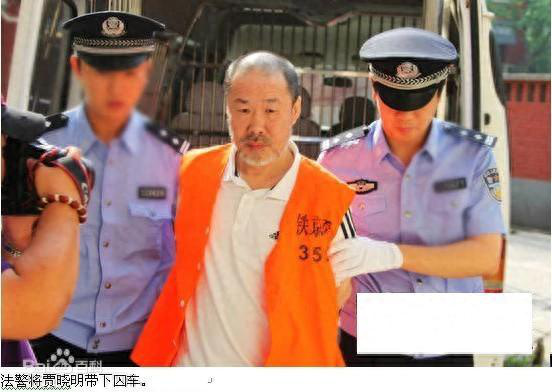
Jia Xiaoming, who was captured after years of escape.
Jia Xiaoming, a Beijinger, went to Tongxian County to jump the queue after graduating from high school. After returning to the city in 1978, he was assigned to work in a factory. In 1979, Jia Xiaoming was reeducation through labor for two years for pickpocketing. After reeducation through labor, there has been no proper job. Later, he started a self-employed business in Dongdan area, mainly selling clothes. In the meantime, he married a woman who was 10 years younger than himself and had a son.
In 1990, Jia Xiaoming found that many people around him began to get on international trains to pour clothes to Russia, and made a lot of money. He joined the team that went to Russia for gold. In 1991, Jia Xiaoming paid someone to apply for a passport to Hungary in the name of studying abroad. Before going abroad, he and his wife went through the divorce procedure.
"I entered the leather jacket from Muxiyuan at that time, and I could make a net profit of more than 10,000 when I ran down!" After being arrested, he talked about the experience of being a traitor, and Jia Xiaoming showed a smug smile at his mouth.
He claimed that his passport expired in 1992 and he returned to Beijing. Because he had relatives in Guilin, he decided to temporarily go to Guilin for development. "After I stayed in Guilin for a while, I also heard from my parents that a public security department came to find me at home. At that time, I thought it must be because I was found stealing Russian wallets." Jia Xiaoming said.
When he lived in seclusion in Guilin, Jia Xiaoming stopped using his own name. Because he was afraid to find a job, he started a small business with more than 20,000 yuan in cash brought from home and opened an account in the name of his cousin. "I have opened a restaurant and worked in a shampoo room. They are all colorful and earn a lot of money." Jia Xiaoming said.
A few years ago, when he was playing cards in the chess room, he met a woman 13 years younger than himself and soon lived together. After being arrested, Jia Xiaoming insisted that he had never participated in a train robbery. "There was no such thing on the train at that time, and I have never heard of it, really."
In 2012, the Beijing Railway Transport Intermediate Court made a first-instance judgment on Jia Xiaoming, a former international train series robbery and rape case who had absconded for 18 years. The court found Jia Xiaoming guilty of robbery, sentenced him to life imprisonment, deprived him of political rights for life, and confiscated all his personal property; He was convicted of rape and sentenced to 15 years in prison and deprived of political rights for three years. Combined punishment for two crimes, decided to execute life imprisonment, deprived of political rights for life, and confiscated all personal property.
On the afternoon of July 22, 2011, a man kept looking around in the waiting line at the exit of T3 terminal of Capital Airport. When going through the exit formalities, the man hesitated and handed his passport to Xiao Wang, a border policeman. It was this action that made the border policeman alert. Xiao Wang found that the man’s passport was named "Li Yong", but the exit card was filled with "Zong Liyong". Looking up the name in the system, the computer shows "wanted criminal of the Ministry of Public Security".
According to reports, at that time, the duty room had quietly arranged a control area to prevent men from escaping. The policeman asked, "Your name? Who is Zong Liyong? " Hearing the words Zong Liyong, the man immediately shouted loudly and said emotionally that he was an Australian and the police had no right to detain him.
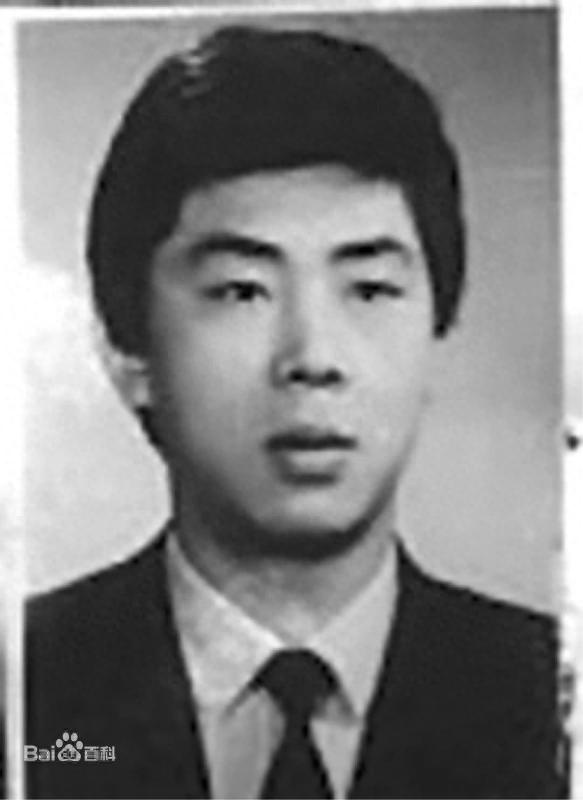
Pictures of Zong Liyong who was wanted in his early years.
Among the things that Zong Liyong carried with him was a calendar. He told the border police that this was to remember the days, and to escape for so long was to count the days.
Zong Liyong used to be very famous. He had a nickname "Dongcheng Laoqi", and he was very powerful among Beijing profiteers who went to Moscow. Eighteen years ago, with the dream of making a fortune, he went to Moscow to apply for a passport in the name of studying abroad and became a "profiteer".
After the robbery, Zong Liyong was a fugitive and almost traveled all over Europe. He changed his name to "Li Yong" and sneaked back to China in 2006. Zong Liyong was afraid of being exposed, so he didn’t dare to look for a job and always made a living by gambling.
The day he was arrested, he planned to go to Macau to gamble, but when he went through the exit formalities, he accidentally filled in his real name on the exit card.
On August 28th, 2011, Wuxiang Square, Qingxiu District, Nanning, Guangxi, was holding a charity event to donate money for poor students. Lin Yonghai, a famous local philanthropist and millions of wealthy businessmen, was invited to be present. In this charity event, "Lin Yonghai" will, as always, donate generously, and the scene is filled with deep warmth.
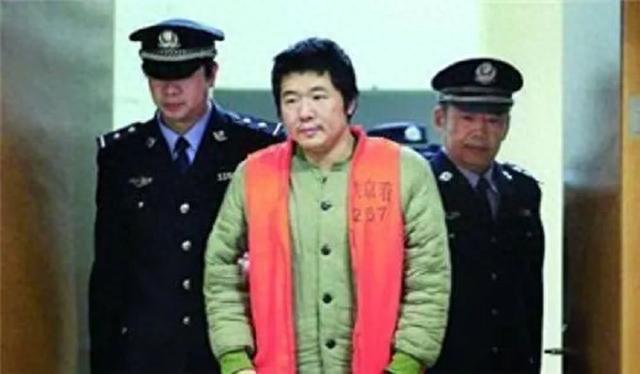
Shao Xun
Suddenly, several plainclothes men with Beijing accent quietly entered the activity site, and after showing their police ID cards in front of Lin Yonghai, they said, "After 18 years, we finally found you. Come with us."
A few days later, Lin Yonghai’s true identity was made public, which shocked the whole country. This Lin Yonghai is another fugitive Shao Xun who participated in the Sino-Russian train robbery.
On February 9, 2012, the Beijing Railway Transport Intermediate Court publicly pronounced a verdict on Shao Xun, a suspect in the Sino-Russian train robbery. The court ruled that Shao Xun was found guilty of robbery, but he voluntarily returned compensation and pleaded guilty, so he could be given a lighter punishment and sentenced to 15 years in prison.
Adaptation of film and television works of Sino-Russian train robbery

Lv Liangwei version of "The Great Train Robbery between China and Russia"
In 1995, Emei Film Studio joined forces with Jiahe Film (Hong Kong) Co., Ltd. and New Hong Kong Film Company. According to the detection process of this case, the film "Ten Mysteries in China: The Great Train Robbery between China and Russia" was produced, and the script was written by police officer Ai Anjun (mentioned above) who participated in the detection of the case. At that time, there were many studios interested in participating in this project, and it was finally decided to be filmed by Emei Film Studio in conjunction with Hong Kong, starring Michael Mak and Lv Liangwei.
In 2012, CCTV-12 channel produced the Franco-Prussian drama "China-Russia Train Robbery" based on this case. In 2018, the Chinese mainland TV series "Moscow Action" starring Xia Yu and Una was also based on this case.

Summer Rain Edition of Moscow Brothers TV Series
At the premiere of the new film "Moscow Action", Ai Anjun, the witness of the Sino-Russian train robbery and the original author of the documentary report "The Sino-Russian International Train Robbery", visited the scene personally.
After watching the movie, he said excitedly that the film seemed to take him back to 30 years ago: "I am a witness, a participant and a comprehensive recorder. Some of the witnesses at that time are gone, but these stories are in my heart."